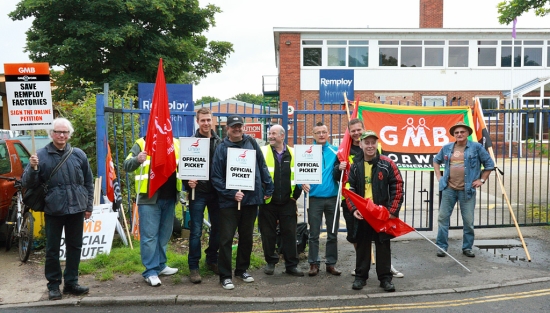Although unemployment has dropped significantly since the recession, one of the Government’s key aims remains the re-introduction of long term unemployed and disabled workers to the workplace. However, according to a leading disability charity, there is simply not enough being done to facilitate this ambition.

Disabled workers protesting against the closure of a Remploy factory in Norwich
Disability Rights UK claims that existing support programmes are failing to properly assess the needs of those struggling to find work and have called for a “radical rethink” in the field. At present, two programmes are available for those with disabilities – The Work Programme and Work Choice – yet neither seem to be providing the individual support which Disability Rights UK believes those it represents require.
For example, in a survey of more than 500 disabled people in August, it was found that 63 per cent of respondents who had received government assistance in a work training programme have as yet failed to find employment. As a result, the vast majority claimed that they would like to be able to choose the nature of the support they receive.
Chief executive of Disability Rights UK, Liz Sayce, believes that changing the current system will benefit both the taxpayer and the disabled people seeking help.
She says; “Cutting out the middle man of employment support – under the guise of the Work Programme and Work Choice – provides a better deal to the taxpayer.
“The Work Programme is a non-work programme – at best it is heading for an 88 per cent failure rate with people on out of work disability benefits.”
In a report submitted to the government, Disability Rights UK has called for a greater understanding on an individual basis of what will truly help those with disabilities. For example, it believes that providing personalised employment support budgets rather than a set state benefit would encourage disabled workers to pursue the career of their choice through training programmes and workplace-based courses.
Furthermore, it claims that a greater success rate could be achieved through placing disabled workers in placements, especially in the case of young disabled workers seeking to develop their skills and qualifications.
Yet the Department for Work and Pensions believes that the existing Work Programme is the optimum way of reintroducing those with disabilities to the employment market. It claims that it already has a high success rate with “thousands of the hardest to help people.”
A spokesman continued; “Previous schemes didn’t do enough for disabled people and those on sickness benefits, which is why we introduced the Work Programme to give tailored support to address individual barriers to work.
“More generally, we have protected the budget for disability employment services and recently kick-started a two year advertising campaign to support business to become more confident at recruiting disabled people, as sometimes employer attitudes can be a barrier to work.”
With most Remploy factories now closed down and alternative paths to work becoming increasingly hard to find, it certainly seems that something must be done to provide assistance to disabled workers. The question is whether the Work Programme can be tweaked to incorporate Disability Rights UK’s suggestions, or whether a radical overhaul of the system is required.
Do you think the government should provide financial incentives for businesses to hire disabled workers, or should funding instead be used to create an initiative similar to Remploy?
Previous Post
Global Retail Bosses back Stores as Growth Driver